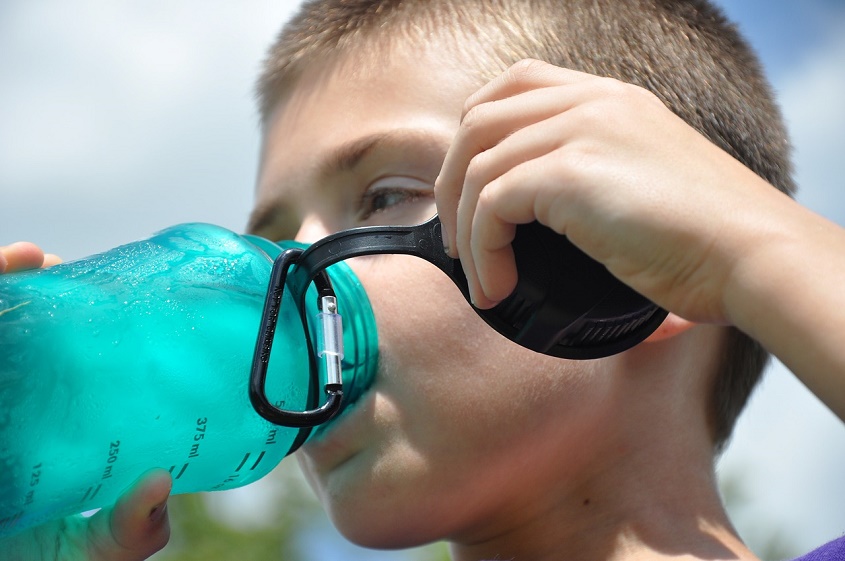Water filter for home has become a massive need for every house. With high pollution going on, agricultural chemicals, pesticides, and more, water safety is no longer guaranteed. And that could only mean that as long as we are consuming this water, our general health is not guaranteed either. Water is a basic need and a necessity. Therefore, it’s not possible to survive without it. For that reason, there is a need to put measures to ensure that all the water we drink and generally use is treated and safe.
People have resolved to drink bottled water with the hope that it is safer. Well, it is safe for the most part, but it could be expensive too in the long run. That is why it is important to have a home water filter. It is important to filter all the water that comes into your house no matter where you live.
What Is a Water Filter?
A water filter is a home appliance that is used to purify water by removing impurities and lowering water contamination using a chemical or a biological process.
How does it work?
There are two ways of filtration;
- Physical filtration – this is the process of clearing large particles from water using a physical barrier
- Chemical filtration – this uses chemical reactions to clear water of smaller impurities
Walter filters are designed to remove all the other water contaminants but Hydrogen and oxygen (water is made of Hydrogen and Oxygen [H2O]). These contaminants could be, mercury, pesticides, lead, pharmaceuticals, perfluorinated chemicals, and pathogens that carry diseases from water.
Importance of Water Filters
Using water filters is a great way to ensure that you are safe from all the harmful components that come with tap water. The importance of using filters include;
- Preventing you from getting diseases and infections that could be caused by drinking unfiltered water.
- Getting rid of all the harmful components in regular tap water.
- The water smells and tastes better when filtered.
- Saves you money in the long run – Instead of purchasing water for the family all the time, investing in a water filter and filtering your own water will save you money in the long run.
How to Choose the Best Water Filter for Your Home
Here is the Pure Water Guide to help you choose the best water filter for your home;
Why do you want to filter your water?
The number one question to help you decide on the filter that will suit your needs is to find out what you are removing from your water.
To answer this question, you can send sample water to your local lab to find out what harmful components need to be eliminated.
Alternatively, you can opt to go for a home water testing kit and test your tap water. There are a lot of online stores you can check out for the testing kits.
Do your Research
Now that you know what you are fighting, the next step is to do a little research. This will help you know the types of options there is to choose, consider the prices, and the one that will best suit your needs.
Your needs
This refers to how much water you need to be filtered. For a lot of water, you might consider filters that could be installed at the point of entry (POE) or if you will only need to filter water when you use (POU), you might consider simple filters like under the sink filters.
Cost
Besides the price of the water filter, it is important to put into consideration the maintenance cost. This includes the cost of the regular replacement of the filter. This expense can be costly, but you could use a title loans refinance to afford the upgrade.
Installation
Water filters used to filter all the water coming into the house may require more work. For example, you may need a plumber to install it for you.
Alternatively, you may go for under the sink filters or tabletops if you just need to filter when you use.
Types of Filtration Systems and How They Work
There are different filtration systems that you can choose for your home water filter. The following are the most popular ones;
- Reverse osmosis filters
Reverse osmosis is one of the most popular types of filtrations to this day.
In this process, water passes through a membrane with pores. This membrane allows water to go through the pores. The contaminants are then left on the surface of the membrane.
Pros
– They are the most effective filters
– They can get rid of dissolved solids e.g. mercury and lead
– They produce the cleanest water
– They are durable
Cons
– They can’t remove chlorine, solvents, and pesticides
– They are slow
– They lower the PH level
– They are expensive
- Carbon filters
Carbon filters are best to remove magnesium, chlorine, organic substances, chloroform, sediments, and agricultural chemicals.
The method of purification used by carbon filters is absorption. Water is passed through the carbon block and the impurities larger than the carbon block pores get absorbed mechanically. They remain on the surface of the activated carbon.
Pros
– They are affordable
– They are effective
– The filters are durable
– They don’t use electricity
Cons
- They can’t dissolve solids
- They can’t get rid of viruses








